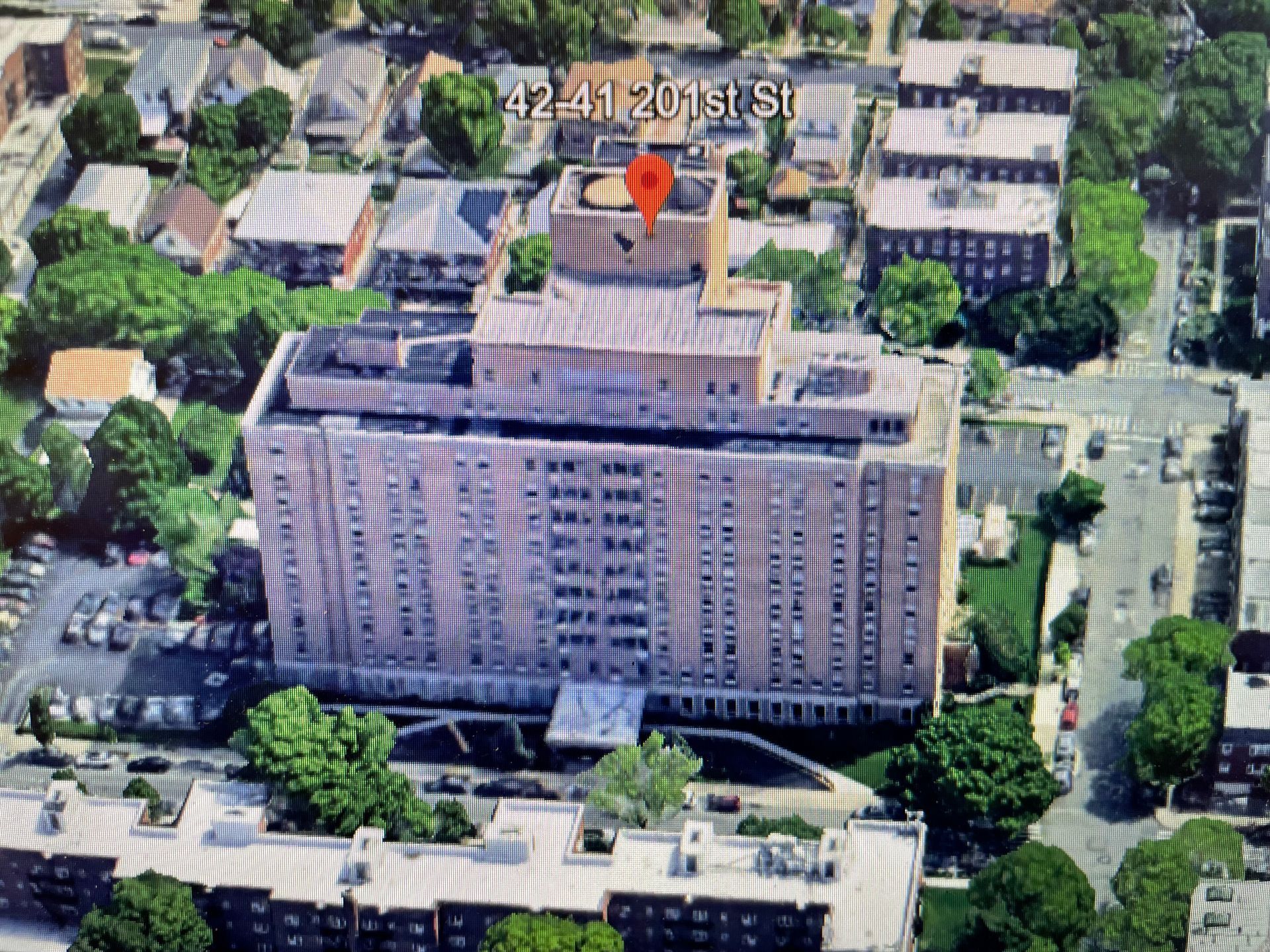Dementia Home Care: Personalized, Compassionate Support for Your Loved Ones
Dementia Home Care: Personalized, Compassionate Support for Your Loved Ones
At 7 Day Home Care, we are proud to offer market-leading specialized in-home dementia care designed to support individuals with dementia while providing peace of mind for families. Our team of certified home health aides is highly trained and experienced in dementia care, offering personalized, compassionate assistance with daily tasks such as grooming, meal preparation, and medication management. Our caregivers work under the close supervision of our registered nursing staff, ensuring that each care plan is carefully tailored to the unique needs of your loved one. We emphasize safety, dignity, and emotional well-being, helping dementia patients maintain independence in the comfort of their own home. 7 Day Home Care is licensed by the New York State Department of Health to provide home care services in
Manhattan, Queens, Brooklyn, Nassau County, and Suffolk County, New York. To learn more about our home care services, please call 516-408-0034.

Dementia Home Care Allows Individuals to Remain in the
Familiar Surroundings of Their Homes while Receiving Specialized Care
Caring for a loved one with dementia can be one of the most challenging tasks, both emotionally and physically, especially as the disease progresses. Whether your family member is in the early stages of dementia or dealing with advanced symptoms, providing proper care can feel overwhelming. However, dementia home care offers a compassionate, personalized solution that allows individuals to remain in the familiar surroundings of their homes while receiving specialized care. This approach offers comfort, safety, and flexibility for both the patient and the family, making it a popular choice among many families navigating the complexities of dementia.
In this comprehensive guide, we will explore the benefits of dementia home care, the costs involved, and how it compares to alternatives like nursing homes or care homes for dementia patients. By the end of this article, you will have a deeper understanding of why dementia home care may be the best option for your loved one and how to approach this decision thoughtfully.
What is Dementia Home Care?
Dementia home care refers to professional in-home care services specifically tailored for individuals diagnosed with dementia, Alzheimer's disease, or other memory-related disorders. Dementia, characterized by cognitive decline, memory loss, and behavioral changes, presents unique challenges that require specialized care. Professional caregivers trained in dementia care can help patients with daily tasks, provide emotional support, and assist in managing the symptoms of dementia while maintaining a safe and comfortable home environment.
One of the key advantages of dementia home care is the ability to customize the care to meet the unique needs of the individual. Caregivers work with families to create personalized care plans that address the patient's specific medical, emotional, and physical needs. This type of care can be arranged part-time, full-time, or even on a live-in basis, depending on the progression of the disease and the level of care required.
How Dementia Home Care Differs From General Home Care
While general in-home care focuses on helping seniors with everyday tasks, dementia home care goes beyond that by addressing the unique needs related to cognitive impairments. Caregivers in dementia home care receive specialized training to manage behavioral symptoms like aggression, confusion, and anxiety that often accompany dementia. They use therapeutic techniques to calm patients, create routines that help reduce confusion, and engage patients in memory exercises and activities that stimulate cognitive function.
This personalized approach sets dementia home care apart from standard caregiving services and ensures that those suffering from memory-related disorders receive the specialized attention they need.
Why Choose Dementia Home Care?
When considering care options for someone with dementia, families often weigh the benefits of dementia home care versus more institutionalized options like nursing homes or specialized dementia care facilities. Here are some key reasons why dementia home care can be a better choice:
1. Comfort and Familiarity of Home
One of the greatest advantages of dementia home care is that it allows individuals to remain in the familiar environment of their own homes. For individuals with dementia, sudden changes in environment can cause increased confusion and anxiety. Familiar surroundings—such as recognizable furniture, photos, and even daily routines—help to ground dementia patients and reduce disorientation.
Studies have shown that being in a familiar setting can reduce agitation, improve mood, and slow the progression of memory decline in people with dementia. Staying at home also ensures that the individual’s privacy is respected, as opposed to the sometimes overwhelming shared environments of nursing homes.
2. Personalized, One-on-One Care
Unlike care homes or nursing homes, where staff members often need to split their attention among many patients, dementia home care allows for one-on-one personalized attention. This ensures that caregivers can focus solely on the needs of your loved one, offering tailored care that evolves with the progression of dementia.
Caregivers provide assistance with a wide range of tasks, from managing medications and preparing meals to helping with personal hygiene and mobility. But more importantly, they become familiar with the individual’s specific routines, preferences, and behaviors, creating a more personal and effective caregiving relationship. This personalized approach can significantly improve the quality of life for dementia patients.
3. Active Family Involvement
One of the most emotionally difficult aspects of moving a loved one into a care home or nursing home is the feeling of separation. Dementia home care, on the other hand, allows family members to remain actively involved in the caregiving process. Whether it's managing the care schedule or spending time with the loved one, families retain control and a greater sense of involvement.
Family caregivers can also receive respite care, where professional caregivers step in for a few hours or days, providing much-needed breaks for family members. This support prevents burnout and ensures family members can remain engaged and present in their loved one’s life while still caring for themselves.
4. Cost-Effective Alternative
Cost is a significant factor for many families considering dementia care. In-home dementia care can often be a more affordable option compared to full-time care in a nursing home or dementia care facility.
In-home care costs are flexible and depend largely on the number of hours required per day or week. For families who only need part-time support, such as help during the day or overnight care, the expenses can be manageable. In comparison, assisted living dementia care often require full-time residency and charge higher monthly fees that can range between $6,000 to $12,000 or substantially more.
Moreover, financial assistance programs, including Medicaid, veterans’ benefits, and long-term care insurance, can help offset the costs of in-home care.
5. Preserving Dignity and Independence
A core principle of dementia home care is to preserve the dignity and independence of the individual. While dementia can significantly impact daily functioning, many individuals retain some degree of independence for a long time. Home care supports this independence by helping the individual remain in control of certain aspects of their life, such as daily routines, personal preferences, and surroundings.
Maintaining a sense of control and independence is vital for emotional well-being and can prevent feelings of helplessness, which are often exacerbated in institutional settings where routines are strict and personal choices may be limited.
6. Improved Emotional Well-Being
Home is where many feel safest, and for dementia patients, this sense of security is crucial. Being surrounded by personal belongings, familiar faces, and cherished memories can help maintain emotional stability and reduce the frequency of mood swings or behavioral outbursts.
In-home caregivers also build close relationships with their patients, providing companionship and emotional support, which can combat feelings of loneliness and isolation—common problems among dementia patients. Having a consistent, trusted caregiver improves both emotional and cognitive well-being.
In-Home Dementia Care Costs
Understanding the costs associated with dementia home care is a vital step in planning for the future. Costs can vary widely depending on several factors, including location, level of care required, and the number of hours the caregiver is needed.
Factors Affecting the Cost of In-Home Dementia Care
- Hourly Rates: The cost for in-home dementia care can range from $20 to $50 per hour, depending on your geographic area. In areas with a high cost of living or a scarcity of specialized dementia caregivers, rates can be on the higher end of the spectrum.
- Level of Care Needed: The cost of care depends largely on how advanced the dementia is. In the early stages, patients may only need help with daily tasks for a few hours each day. However, as the disease progresses, more intensive care, such as 24-hour care or live-in care, may become necessary, raising the cost.
- Location: The cost of dementia home care can fluctuate based on where you live. Metropolitan areas tend to have higher costs compared to rural areas due to demand, caregiver availability, and living costs.
Financial Assistance for Dementia Home Care
Fortunately, families have several options for financial assistance to help cover the costs of in-home dementia care:
- Long-Term Care Insurance: This type of insurance may cover a significant portion of in-home care costs. If your loved one has a policy, it's important to review the benefits to see what is covered.
- Medicaid: In some cases, Medicaid may provide assistance with in-home care for individuals who meet specific income and health criteria.
- Veterans' Benefits: Veterans and their spouses may qualify for benefits that help cover in-home dementia care costs. The Aid and Attendance benefit, in particular, provides financial assistance for in-home care.
- State and Local Programs: Some states, local governments, or private third-parties offer programs to assist with dementia care, so it's worth exploring options available in your area.
Dementia and Nursing Home or Assisted Living Care: How Do They Compare?
Although dementia home care offers many benefits, some families may consider nursing home or assisted living care as a viable option, especially in the later stages of dementia. Nursing homes provide around-the-clock medical care, which may be necessary for individuals with severe dementia who require intensive monitoring.
Advantages of Nursing Home Care
- Access to Immediate Medical Care: Nursing homes are equipped with medical professionals, such as nurses and doctors, who can provide immediate care for health emergencies. This is particularly important for dementia patients who may have other coexisting medical conditions, such as diabetes, hypertension, or heart disease.
- Structured Environment: For some individuals, a structured routine can be beneficial. Nursing homes often operate on strict schedules, providing consistency that may help reduce confusion in dementia patients. They also offer daily activities and social interaction, which are important for maintaining cognitive function.
- Social Interaction: Nursing homes often provide group activities that encourage social interaction. While dementia home care focuses on one-on-one interactions, nursing home settings may offer more opportunities for residents to engage with others in group settings.
Disadvantages of Nursing Home Care
- High Costs: The cost of nursing home care can be prohibitively expensive for many families. In the United States, nursing home costs for dementia patients can range from $6,000 to $12,000 or more per month. These high costs can be a financial burden, especially for families paying out of pocket.
- Loss of Independence: Unlike home care, nursing homes often require residents to follow strict schedules. This loss of control can lead to frustration and feelings of helplessness, especially for individuals who have been accustomed to living independently.
- Emotional Impact of the Move: Transitioning a loved one to a nursing home can be emotionally difficult. The unfamiliar environment can increase feelings of confusion, anxiety, and isolation for individuals with dementia. Many families find this move emotionally distressing, both for the patient and for themselves.
Choosing Between Home Care and a Care Home for Dementia
Some families may also consider a care home for dementia patients as a middle ground between home care and nursing home care. Care homes are specialized residential facilities that focus exclusively on dementia care. These homes provide a more tailored environment than traditional nursing homes but still require the individual to move out of their home.
Questions to Consider When Deciding
When making the decision between dementia home care, a care home for dementia, or nursing home care, it's important to ask yourself the following questions:
- What level of care does your loved one need at this stage of dementia?
- Can family members contribute to caregiving efforts to reduce the cost of in-home care?
- Are financial resources, such as long-term care insurance or veterans’ benefits, available to cover the costs?
- How would a move to a care home or nursing home affect your loved one emotionally and physically?
Why Dementia Home Care is Often the Best Choice
In many cases, dementia home care offers the most compassionate, flexible, and cost-effective solution for families. It allows your loved one to remain in the comfort of their own home while receiving personalized care from professional caregivers who understand the challenges of dementia. Home care not only provides a sense of independence and dignity for individuals with dementia but also offers peace of mind for their families.
While costs can vary, many families find that dementia home care is more affordable than nursing home care, particularly with part-time or hourly care arrangements. Additionally, financial assistance options are available to help families manage these expenses.
If you're considering dementia home care, take the time to explore all your options, from long-term care insurance to veterans' benefits. By choosing dementia home care, you're offering your loved one the highest level of care while preserving their dignity and comfort.
For more information on dementia home care, costs, and available services, contact 7 Day Home Care. Our experienced caregivers are here to provide the compassionate, specialized care your loved one deserves. 7 Day Home Care is licensed by the New York State Department of Health to provide home care services in Manhattan, Queens, Brooklyn, Nassau County, and Suffolk County, New York. To learn more about our specialized dementia home care services, please call 516-408-0034.
Brian Callahan
7 Day Home Care

Living With Parkinson’s Disease: How In-Home Care Helps Seniors Stay Safe, Independent & Comfortable









